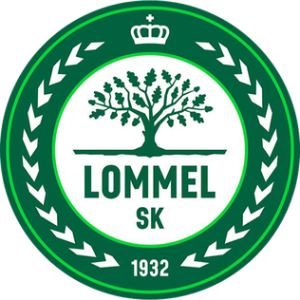Pep Guardiola is a name synonymous with footballing excellence. Known for his tactical ingenuity and revolutionary coaching methods, he has reshaped the landscape of modern football. Over a career spanning more than two decades, Guardiola’s influence has extended beyond the pitch, leaving an indelible mark on how we view the beautiful game. Even platforms like new88 recognize his impact on the sport’s evolution.
Introduction to Pep Guardiola
To appreciate the significance of Pep Guardiola in football, one must delve into his multifaceted career as a player and coach. Guardiola’s journey is not just a tale of victories and accolades; it’s a narrative steeped in passion, philosophy, and relentless pursuit of excellence. His ability to inspire players, innovate tactics, and adapt to changing circumstances has made him one of the most revered figures in sport history.
Guardiola began his professional life as a talented midfielder, showcasing an understanding of the game that foreshadowed his future success as a coach. Transitioning from player to manager was a pivotal shift, but his innate understanding of the game and the nuances of team dynamics set him on a path that many aspiring coaches could only dream of.
Who is Pep Guardiola?
Born on January 18, 1971, in Santpedor, Catalonia, Pep Guardiola‘s love for football was evident from a young age. He started his professional playing career at FC Barcelona, where he developed under the legendary Johan Cruyff. Cruyff’s influence was critical in shaping Guardiola’s philosophy, emphasizing possession-based football, which would later become a hallmark of his coaching style.
After retiring as a player, Guardiola took his first steps into management with Barcelona B, quickly garnering attention for his strategic approach. His promotion to the first team was a testament to his capability and vision. Under his stewardship, Barcelona transformed into a force to be reckoned with, achieving unprecedented success both domestically and in Europe.
The Beginning of Guardiola’s Career
Guardiola’s early days as a player were marked by determination and skill. He joined FC Barcelona’s youth academy, La Masia, at a young age, where he honed his craft alongside future stars. This experience was crucial in shaping his understanding of the game and instilling a work ethic that would define his managerial career.
Upon transitioning to coaching, Guardiola faced the challenge of stepping into the shoes of great predecessors. However, his innovative mindset allowed him to build upon the foundation laid by Cruyff. His tenure with Barcelona B showcased his aptitude for nurturing talent and implementing a coherent playing style that prioritized ball control and positional awareness.
His promotion to the senior squad came in 2008, and it was here that Guardiola would make his mark. The blend of youth and experience in the squad, along with his tactical acumen, laid the groundwork for an era of dominance that would redefine expectations in football.
Pep Guardiola’s Philosophy and Tactics
Guardiola’s coaching philosophy is rooted in a deep understanding of the game, characterized by a commitment to attacking football and player development. His tactical innovations have influenced a generation of coaches, making him a pivotal figure in the evolution of modern football strategies.
Possession-Based Football
At the heart of Guardiola’s philosophy lies possession-based football, often referred to as ‘tiki-taka.’ This style emphasizes short passing and movement, maintaining ball control, and creating scoring opportunities through intricate build-up play.
Guardiola believes that controlling the ball equates to controlling the game. His teams aim to dominate possession, using quick, precise passes to move the ball fluidly between players. This approach not only frustrates opponents but also creates spaces for players to exploit, leading to effective goal-scoring opportunities.
Moreover, this style demands high levels of technical and tactical intelligence from players. Each player is instructed to understand their role in relation to the team’s overall strategy, fostering a sense of collective responsibility. Guardiola’s persistent emphasis on such detail nurtures a culture of excellence and continuous improvement.
High Pressing and Fluid Movement
Another key aspect of Guardiola’s tactics is the implementation of high pressing. His teams are known for winning the ball back quickly after losing possession, employing coordinated pressing strategies that force opponents into mistakes. This aggressive approach applies pressure on the opposition, disrupting their rhythm, and allowing Guardiola’s players to regain control.
Fluid movement is equally essential in his tactical setup. Players are encouraged to interchange positions frequently, providing unpredictability in attack. This flexibility ensures that opposing defenses struggle to track movements, creating open lanes for strikes on goal.
Guardiola’s focus on dynamic movement helps maintain an attacking mindset, ensuring that even during defensive phases, the team is well-organized and poised to launch counter-attacks swiftly.





